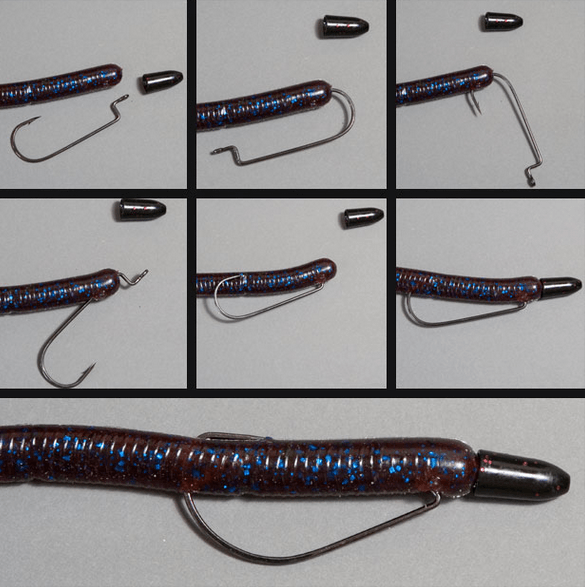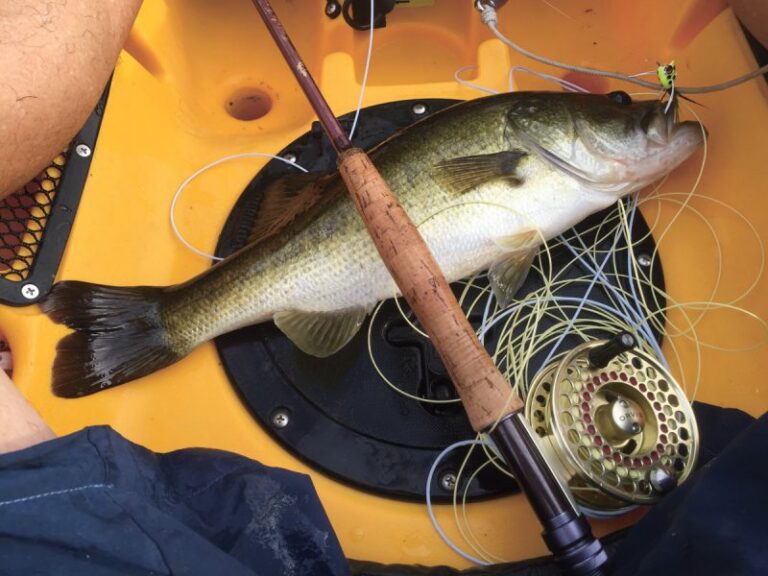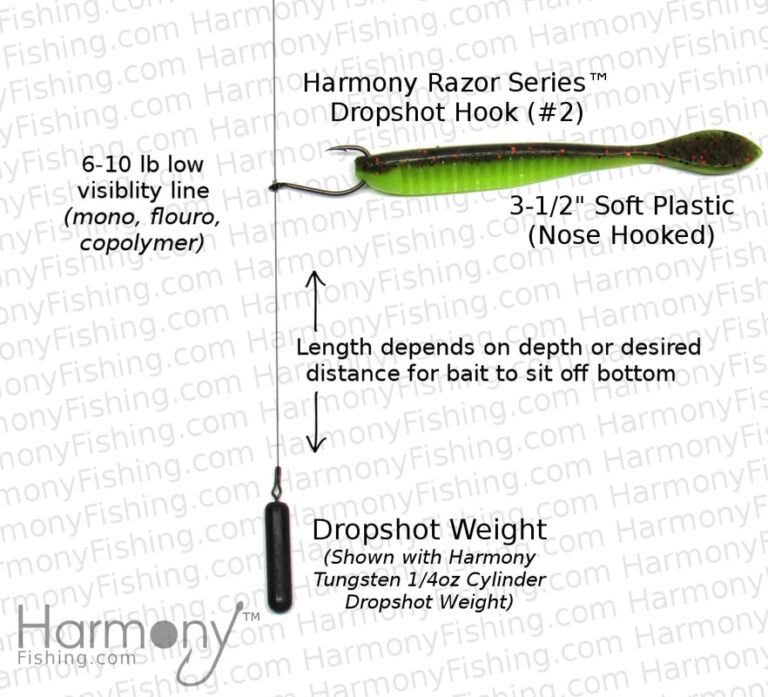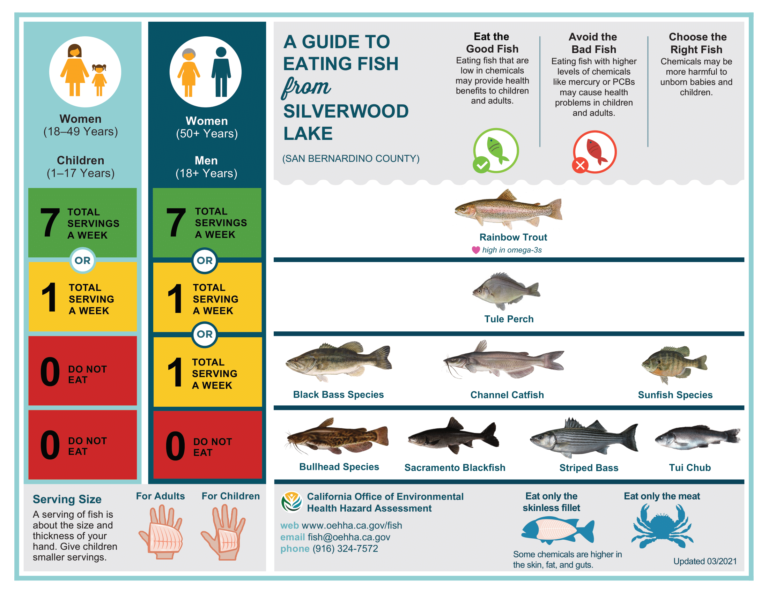How to Use a Chatterbait for Bass
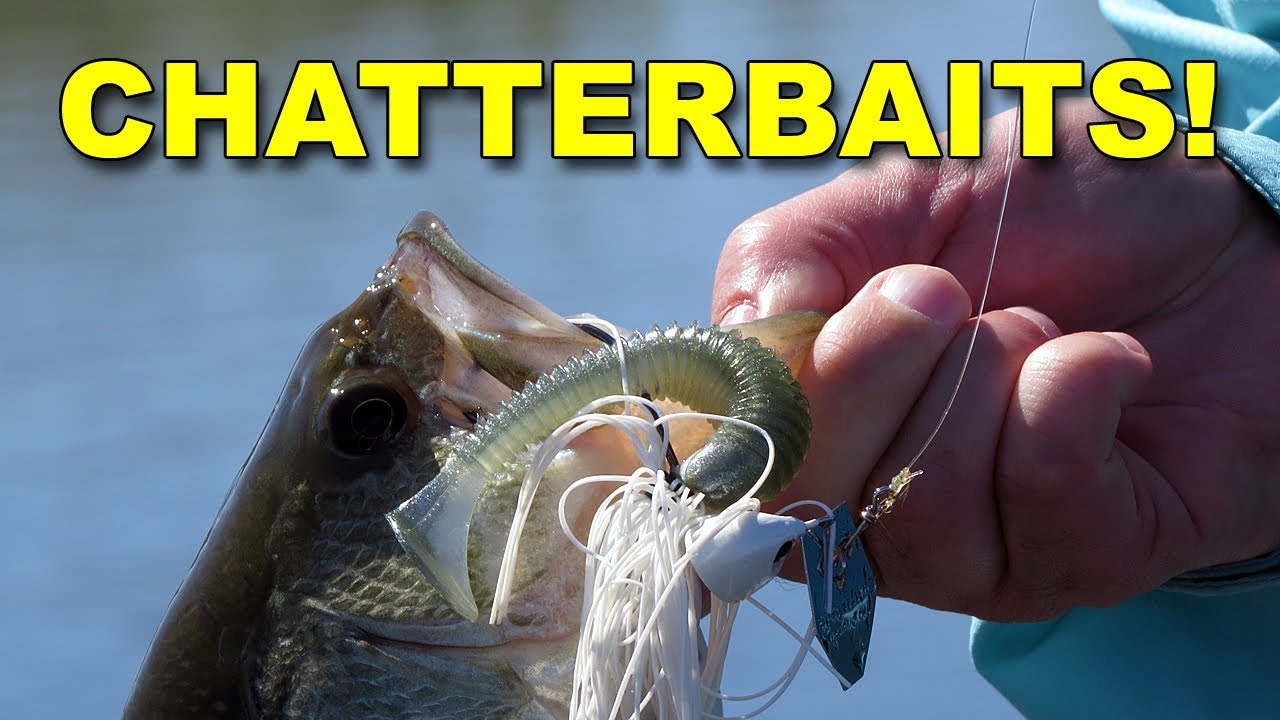
To use a chatterbait for bass, cast it out and reel it in with a steady retrieve. Adjust the speed and add occasional pauses to mimic live prey.
Chatterbaits, also known as bladed jigs, have gained popularity among bass anglers for their versatility and effectiveness. These lures combine the motion of a jig with the vibration of a spinnerbait, which can trigger aggressive strikes from bass. They excel in a variety of conditions and can navigate through cover, such as grass, with ease.
The key to success with chatterbaits involves experimenting with retrieves and adapting to the bass’s behavior. Whether you are working through murky water or targeting specific structures, mastering the chatterbait technique can significantly enhance your bass fishing expeditions.
Unveiling The Chatterbait
The Chatterbait revolutionized bass fishing with its unique design and impressive results. A fusion of a jig and spinnerbait, it creates vibrations that attract bass. The components such as hex-shaped blade, silicone skirt, and hook work together.
These parts make the Chatterbait a top choice for anglers. The blade at the front churns water, mimicking wounded prey. Bass see this as an easy meal. The skirt provides lifelike action, further tempting the fish.
| Component | Function |
|---|---|
| Hex-shaped Blade | Creates vibrations to attract bass |
| Silicone Skirt | Mimics fish movements, adds realism |
| Sharp Hook | Ensures a firm catch when bass strikes |
Ideal Conditions For Chatterbait Success
Bass fishing success with a chatterbait can hinge on understanding weather patterns and water clarity. Clear skies and light winds often mean shallow waters are your best bet. Yet, murky conditions suggest a deeper approach may yield better results.
Different seasons affect bass behavior greatly. Spring brings active bass to warmer shallows. Summer heat pushes them to cooler, deeper spots. Fall sees bass preparing for winter, making them aggressive feeders in various depths. In winter, slow-moving lures in deeper zones are key due to the bass’s slower metabolism.
Choosing The Right Chatterbait
Selecting the right chatterbait is vital for catching bass. Consider size and color based on the water conditions. Clear water calls for natural colors like greens and browns. In murky water, go for bright colors like chartreuse to stand out.
Blade types also influence your success. Stainless steel blades are common and offer longevity. Titanium blades provide more flex and can enhance vibration. Choose based on the type of action you desire and the water clarity.

Credit: www.youtube.com
Rigging Techniques
Attaching a Chatterbait to your line is simple. Tie the lure directly to your fishing line. A strong knot keeps your Chatterbait secure. Remember to check your knot strength often.
Picking the right trailer is key for more bites and big bass thrills! Soft plastic trailers work best. Use paddle tail trailers for slow retrieves. Try curly tails for faster movements. Both add a killer action that bass love. Always match trailer color to your Chatterbait. This makes it irresistible to fish.
Mastering The Retrieval
Mastering the retrieval of a chatterbait is key to luring bass. The steady retrieve method involves maintaining a constant speed. Cast your chatterbait out and start reeling it in at a pace comfortable to you. This technique allows the chatterbait to move smoothly through the water, mimicking a swimming baitfish.
Experimenting with variable speed and rhythmic twitching adds a level of unpredictability. Try speeding up the reel for a few seconds, then slowing it down. Insert short, sharp twitches with your rod tip. This mimics a fleeing or injured baitfish, often triggering an aggressive response from bass. Use these tactics to deceive bass into biting.
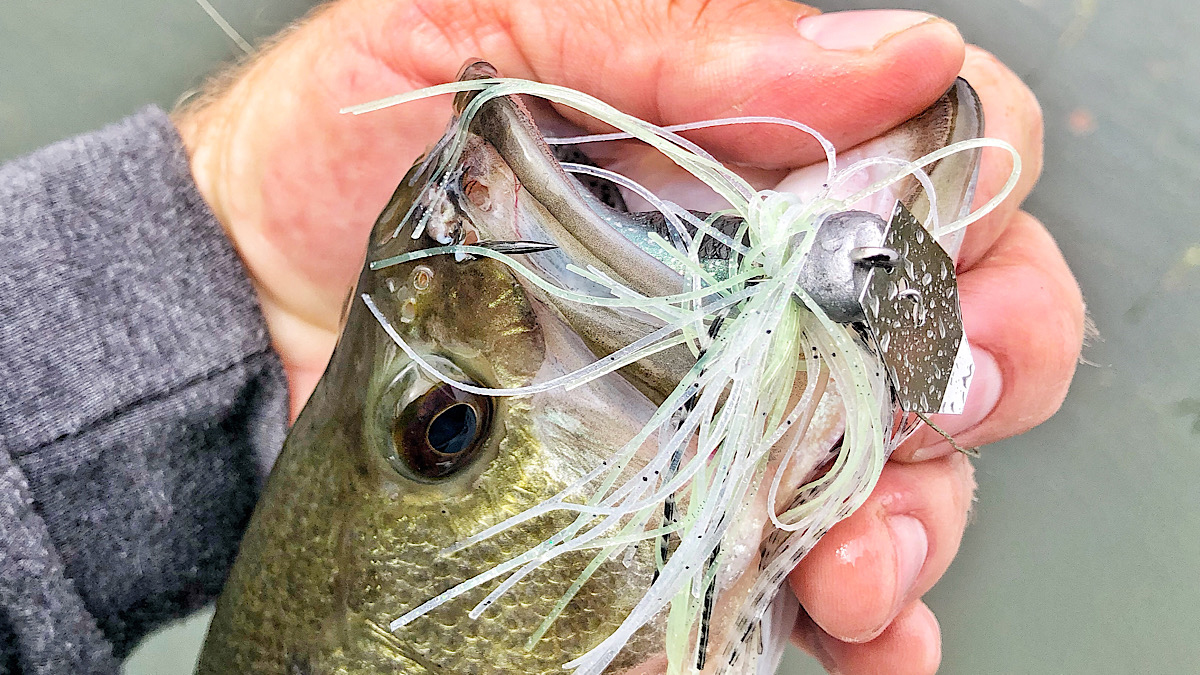
Credit: www.wired2fish.com
Strategic Casting Tips
Chatterbait proves lethal for luring in bass. Locate underwater features first. Bass often hide around weeds, rocks, and stumps. Cast your line close to these areas for best results.
Move to shallow waters during dawn and dusk. Here, bass actively pursue prey. Your chatterbait should mimic small fish movements. Slow reeling often entices fish in these feeding zones. Recall bass track vibrations and noise. A chatterbait’s clacking sound appeals to their senses well. Keep your retrieve varied; mix up speeds and jerks.
Advanced Chatterbait Tactics
Effective chatterbait tactics can drastically improve your bass fishing game. Integrating chatterbaits with other lures, such as plastic worms or minnow baits, can create an irresistible combination for bass. This strategy mimics a natural environment, prompting bass to strike more often.
To maximize your catch, experiment with different retrieval speeds and motions. Snap or twitch the rod tip occasionally to make the lure dart or pause underwater. These movements can trigger aggressive bites from bass.
Table 1 shows the recommended lure combinations for enhanced chatterbait efficiency.
| Lure Combination | Expected Outcome |
|---|---|
| Chatterbait + Plastic Worm | Mimics a fleeing prey |
| Chatterbait + Minnow Bait | Resembles school of baitfish |
| Chatterbait + Swim Jig | For dense vegetation areas |
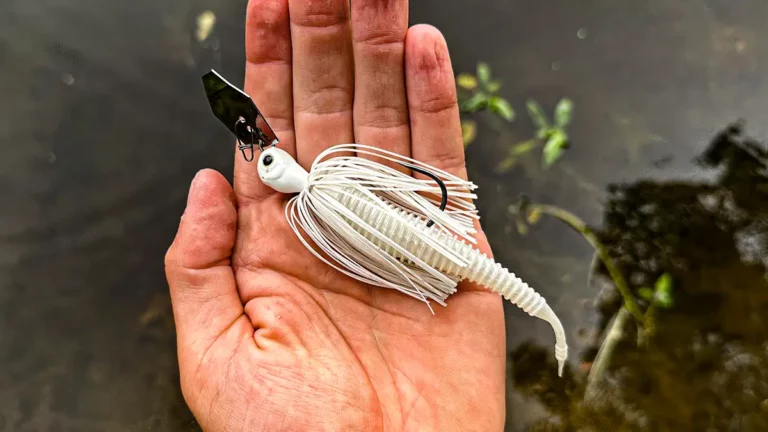
Credit: www.wired2fish.com
Frequently Asked Questions On How To Use A Chatterbait For Bass
When Should You Fish A Chatterbait?
Fish a ChatterBait during pre-spawn or when bass hunt in shallow water. Murky water conditions and overcast days also enhance its effectiveness. Ideal times include early morning or late afternoon.
What Conditions Do You Throw A Chatterbait?
Throw a ChatterBait in stained or murky water, around vegetation, during windy conditions, for aggressive bass, and in pre-spawn periods.
How Do You Rig A Chatterbait?
To rig a ChatterBait, attach it to your line using a loop knot. Then, add a soft plastic trailer by threading it onto the ChatterBait’s hook. Ensure the trailer sits flush against the jig head for optimal action.
How Effective Are Chatterbaits?
ChatterBaits are highly effective lures for bass fishing due to their unique vibrating action and visibility in murky water, attracting fish through sound and movement.
Conclusion
Mastering the chatterbait technique can significantly boost your bass fishing game. Practice casting, retrieval, and location scouting to lure in that impressive catch. Remember, patience and adaptation are your best tools. Keep refining your skills and the bass will come.
Tight lines and happy fishing!
